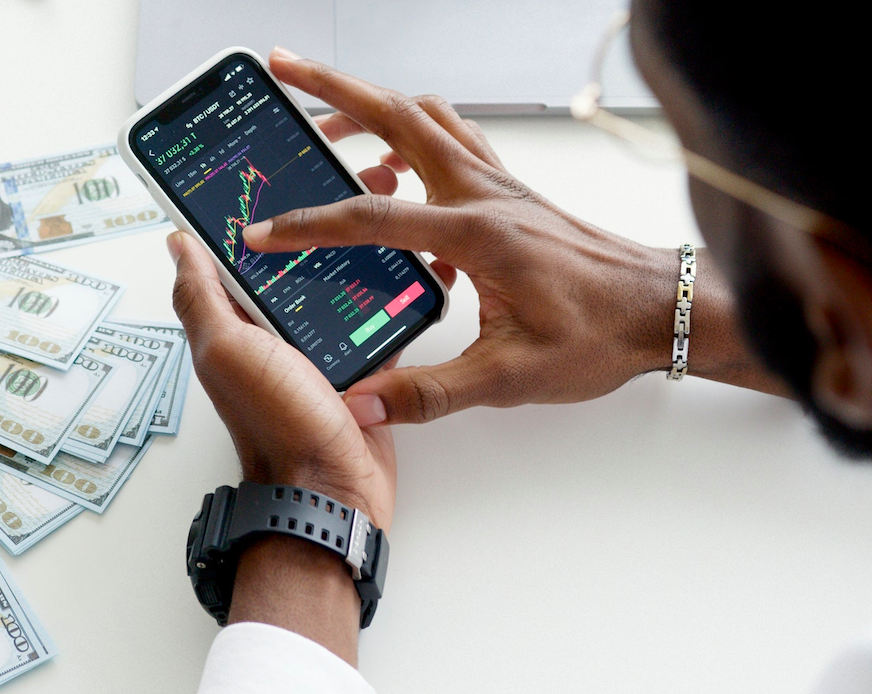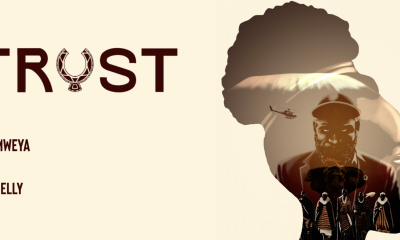Crypto exchange Luno has announced this week that it has hit nine million customers. To learn about this and other top stories, keep reading.
Luno Hits 9 Million Customers
 Crypto exchange Luno has announced that it has hit nine million customers. The company has achieved this milestone after acquiring one million customers in slightly over four months. More than 30 per cent of the new one million customers are from South Africa. In the last year, Luno has obtained more than 3.6 million new customers.
Crypto exchange Luno has announced that it has hit nine million customers. The company has achieved this milestone after acquiring one million customers in slightly over four months. More than 30 per cent of the new one million customers are from South Africa. In the last year, Luno has obtained more than 3.6 million new customers.
“The average value of first deposits made by our million new customers is around R550 (USD37). Most new customers (67 per cent) bought Bitcoin, while 43 per cent bought Ripple and 20 per cent bought Ethereum. Of the new customers, 37 per cent are aged between 18 and 24, and gender splits align with trends in financial services – almost three quarters (71 per cent) are male. As we hit the 9 million customer mark, it is a fitting symbol that Luno’s logo now adorns an iconic building in Cape Town’s unofficial financial district on the foreshore,” said Marius Reitz, GM for Africa at Luno.
Binance Ceases Derivatives Trading in South Africa After Regulator’s Warning
After a meeting with South Africa’s Financial Sector Conduct Authority (FSCA), Binance will no longer provide derivatives trading to South Africans. According to FSCA, South Africans cannot open new derivatives trading accounts on Binance, and existing accounts have to be closed within 90 days. Moreover, Binance is not authorised to “render any intermediary services in South Africa in terms of the Financial Advisory and Intermediary Services Act, 2002 (FAIS Act).”
In a statement, Binance said that it would no longer offer futures, margin trading, and options trading in South Africa, as well as leveraged tokens.
Recently, regulators in several countries have been scrutinising Binance and its activities. For instance, the crypto exchange is under investigation by the Justice Department and IRS in the US.
Jelurida to Launch 30-Day Blockchain Education Tour in East Africa
 Jelurida Africa has announced that it will launch a 30-day blockchain education tour in East Africa. The tour will start in Zanzibar on October 23 then proceed to Kenya, Uganda, Rwanda, Tanzania, Zimbabwe, Malawi, and Mozambique.
Jelurida Africa has announced that it will launch a 30-day blockchain education tour in East Africa. The tour will start in Zanzibar on October 23 then proceed to Kenya, Uganda, Rwanda, Tanzania, Zimbabwe, Malawi, and Mozambique.
The company will promote blockchain education through meetups in financial institutions, universities, and public offices. The team that will participate in this tour comprises smart contract and distributed ledger technology experts.
Jelurida – an African arm of the organisation behind the Nxt, Ardor, and Ignis blockchain – is targeting lawmakers, developers, private firms, and blockchain enthusiasts.
Police Issue Arrest Warrant for South African Crypto Trader
According to an article on Bitcoin.com, a South African crypto trader is in trouble for allegedly defrauding an investor R500,000 ($33,000). Allan Ledwaba, the victim, invested the funds in Sandile Shezi’s company Global Forex Institute. Ledwaba secured the $33,000 through a loan from his father.
“The agreement was that he would trade the money for me, and then every year he would give us [a] profit and then the full amount we had invested thereafter. But I became suspicious when I researched the name of the law firm used to draw up our contracts. I went to the law firm and spoke to the director, who said that they did not have a relationship with Sandile,” Ledwaba said.
Another investor also claims that he invested his pension of $67,000 with Shezi’s company. However, the company defaulted on monthly dividend payments, forcing the investor to ask for a reimbursement. Unfortunately, he only received $6,700.
These are not the first cases of crypto scams in the country. South Africa is still reeling from the MTI and Africrypt scams.
Algorand Announces Bounty Hack for African Developers
 The Algorand Foundation and Reach, in collaboration with Africa Blockchain Alliance, have announced a Bounty Hack for African developers. The Decentralised Umoja Bounty Hack is a guided hackathon where participants will learn how to build DApps. Participants will have to complete projects over a six-week period (October 25 to December 10, 2021).
The Algorand Foundation and Reach, in collaboration with Africa Blockchain Alliance, have announced a Bounty Hack for African developers. The Decentralised Umoja Bounty Hack is a guided hackathon where participants will learn how to build DApps. Participants will have to complete projects over a six-week period (October 25 to December 10, 2021).
The program includes prizes and incentives. For instance, teams that do not make it to the top 3 will get $600. Interested candidates have until October 22 to send their applications.
To learn more about Bitcoin, download the Bitcoin Beginner’s Handbook for free.


 Features3 years ago
Features3 years ago
 Bitcoin2 years ago
Bitcoin2 years ago
 Features3 years ago
Features3 years ago
 Features3 years ago
Features3 years ago
 Features3 years ago
Features3 years ago
 Features3 years ago
Features3 years ago
 Features8 months ago
Features8 months ago
 Bitcoin10 months ago
Bitcoin10 months ago

 Crypto exchange
Crypto exchange  Jelurida Africa has announced that it will launch a 30-day blockchain education tour in East Africa. The tour will start in Zanzibar on October 23 then proceed to Kenya, Uganda, Rwanda, Tanzania, Zimbabwe, Malawi, and Mozambique.
Jelurida Africa has announced that it will launch a 30-day blockchain education tour in East Africa. The tour will start in Zanzibar on October 23 then proceed to Kenya, Uganda, Rwanda, Tanzania, Zimbabwe, Malawi, and Mozambique. The Algorand Foundation and Reach, in collaboration with Africa Blockchain Alliance, have announced a Bounty Hack for African developers. The Decentralised Umoja Bounty Hack is a guided hackathon where participants will learn how to build DApps. Participants will have to complete projects over a six-week period (October 25 to December 10, 2021).
The Algorand Foundation and Reach, in collaboration with Africa Blockchain Alliance, have announced a Bounty Hack for African developers. The Decentralised Umoja Bounty Hack is a guided hackathon where participants will learn how to build DApps. Participants will have to complete projects over a six-week period (October 25 to December 10, 2021).


















 Central African Republic (CAR) has set up a 15-member committee that will be responsible for developing a bill on the use of cryptocurrencies and tokenization in the region.
Central African Republic (CAR) has set up a 15-member committee that will be responsible for developing a bill on the use of cryptocurrencies and tokenization in the region.
